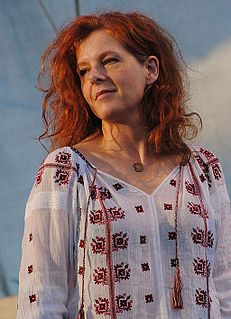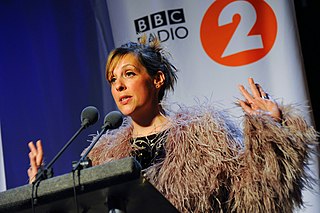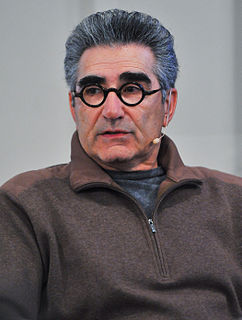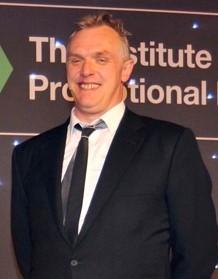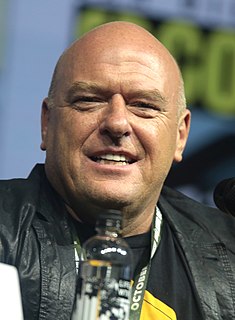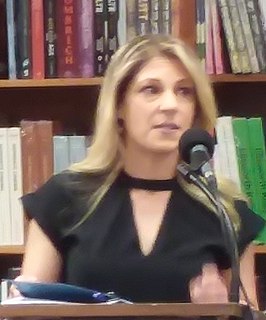A Quote by Vic Reeves
I couldn't ever stand up in front of an audience on my own and talk to them. It would be awful; I couldn't bear to do it.
Related Quotes
I enjoy it all: performIng, doing TV, movies, comedy, drama, stand-up, animation voicework, singing, but you get that instant gratification from stand-up because it's your own commentary and you get to see the reaction from the audience that's right there in front of you. I also love coming up with characters and watching people embrace them and enjoy them.
[Buckminster Fuller] was quite willing to talk. He'd talk at the drop of a hat.I learned to talk in front of people by listening to the way he did things. Because he would give lessons in how to lecture. He would say, "Never take a note, just stand up and start babbling. And then eventually you're going to be able to make some coherent statements, and so it's like you're vamping. And then people will gradually start to listen to you when this spot of logic shows up in this torrent of verbiage.
I started out being a stand up and writing my own material. That took me to Talk Soup, where I was writing and performing for TV. So everything is all the same job in my eyes, and I don't want to ever give up any part of it. I will say that stand-up is my first love; it's how I got started and is in my bones.
I think as a performer, it can be really great to stand on stage, especially when you have more time, but I do think about the specific people in the audience, how it's hard for them to get up and go to the bathroom, how they chose not to do other things that night and have turned off their phones and everything. So for that reason, I think it's necessary to mix it up and talk to the audience.
I have a hard time taking myself seriously. My band the New Pornographers doesn't take me seriously, which is why I love them. We can't stand up there and pretend. What we're doing is really important to me and it's my job and I love it, but I can't just stand there unflinchingly noble in front of the audience.
We were in front of a live audience and I would be acting with the man who was playing my lover, and we used those words, and the audience would titter and laugh, and make me uncomfortable doing the scenes. ... I wanted to sort of stop and yell at them, "What's so funny? What's the matter with you people? Grow up!" It made me very self-conscious at times.
I would hate to be in high school now. Psychologists talk about the 'imaginary audience' that teens seem to feel they have around them and that makes them think they have to keep up their image all the time. Now with Facebook and MySpace and 24/7 online access, that imaginary audience has become real.









